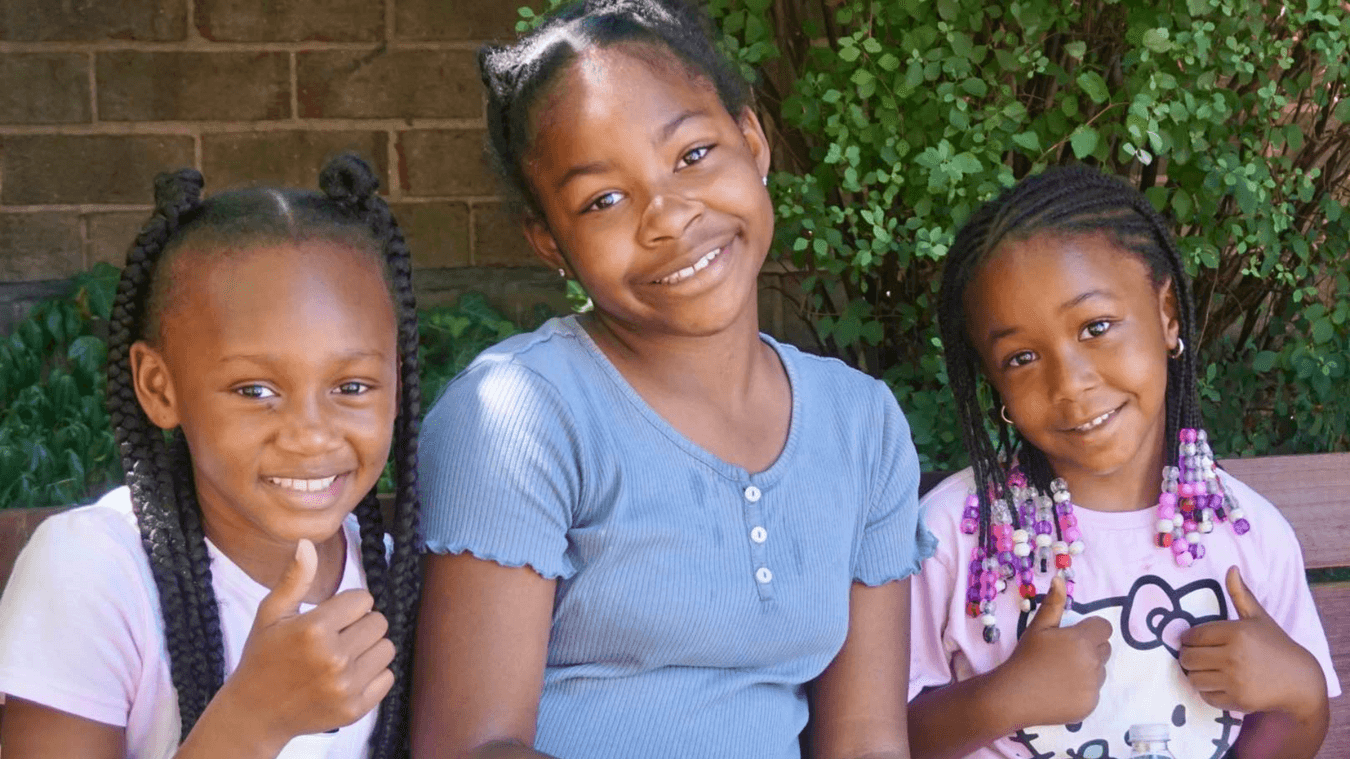
When Shanel Wilson found herself at DC General Family Shelter as a Playtime volunteer in college, she never dreamed she would intersect with Playtime again seven years later. This past spring, Shanel, now Deputy Chief of Staff for DC Councilmember Robert White, attended a Playtime session in Columbia Heights with the Councilmember and the rest of his team.
Shanel Wilson’s path to becoming Deputy Chief of Staff was fueled by a strong personal commitment to protecting children and making sure they have the opportunities all children deserve. Today, DC youth are being vilified as criminals by officials in power. Shanel’s story shows us that compassion and community efforts are the better way forward if we are truly serious about making DC the best it can be.
When did you volunteer at Playtime? Why did you decide to volunteer?
It was in 2016 after I graduated from Howard University. I wanted to give back because I felt like coming to DC was a new life for me. I lost my parents when I was younger and my mom’s sister, who raised me, was abusive. I wanted to give back to children who were in similar situations. I was a court-appointed advocate with CASA at one point, supporting foster youth involved with the courts due to abuse and neglect.
What do you remember about volunteering at the DC General Family Shelter (DCG)? What are some memorable moments that stick with you?
One of the things I remember about DCG was how shocking it was to see how many entire families were homeless. There was this juxtaposition of children being children and experiencing joy despite their difficult circumstances.
I have so many great memories. During my time there, I became good friends with Nikki [Russell, co-author of the Dork Diaries children’s books who often volunteered as a special guest at Playtime]. I remember when we took all the kids to see “Black Panther” at the movie theater. I also had a friend from Howard who did portraits, so she came in and we had the children create self-portraits. For Halloween one year, we made DCG into a haunted house. We decorated everything and kids were jumping out, trying to scare each other and laughing.
“My memories of DCG are always on my mind. It shows how we’re all a paycheck away from homelessness... Seeing people live in squalid conditions like that is why I have the Councilmember do housing tours. You need to be there in person to have those experiences shape policy. I don’t see how anyone can be in a job related to housing and not see how people live every day.”
What was your path to becoming Deputy Chief of Staff for Councilmember Robert White?
I never thought I would be in politics per se. I never strived for it; I didn’t come to DC to be a politician. My father was a diplomat in Nicaragua and was a prisoner of war under the Somoza dictatorship, so politics to me looks different because of my family’s experience. But there’s the saying, “You are where you’re supposed to be.” I'm a testament to that.
I have a creative side, so I was studying communications, filmmaking, and sociology at Howard University. When I was working at a law firm and I eventually reached the highest level I could, my mentor told me I should take the opportunity to look for bigger and better things. Somehow the mayor’s office received my resume and invited me to become the Associate Director of Public Safety & Justice. I was helping the mayor with messaging, communications, and hiring. Later, a position with Councilmember Robert White opened up.
My first apartment in DC, Park 7 Apartments, was run by a slumlord. That’s where I first met Councilmember White. He was there to advocate for the tenants because my neighbors with housing vouchers were being treated differently. Ultimately, the Attorney General awarded the residents money because of the terrible conditions. Over time, I lost track of the Councilmember, but when I got the job offer it seemed like the appropriate time to make that kind of change and serve the community.
Do you feel your Playtime experience impacts how you see local politics and policymaking today?
I definitely think Playtime played a part. My memories of DCG are always on my mind. It shows how we’re all a paycheck away from homelessness. Because I’ve seen children in that situation it makes me viscerally upset sometimes when people in government are not taking their job seriously. Seeing people live in squalid conditions like that is why I have the Councilmember do housing tours. You need to be there in person to have those experiences shape policy. I don’t see how anyone can be in a job related to housing and not see how people live every day.
How do you see yourself continuing to contribute to the causes of housing and homelessness in DC? How can others get involved?
Fair, safe, and affordable housing will always be something that I’ll stick with. It’s a big part of my whole journey because your home is supposed to be your most sacred space. I think the memories I have from my youth, from Playtime, and from my work will always shape how I engage with the community.
To get involved, you should volunteer for Playtime, volunteer for CASA—especially with today’s commentary from people like Jeanine Pirro saying, “these youth are terrorizing the city.” How about you volunteer with them and hear their stories? You never know why people may decide to do certain things. You can volunteer with the Councilmember’s office. Follow social media accounts that share firsthand what’s going on at many of these expensive housing complexes. The problem isn’t always people not paying their rent; it can be landlords not providing safe or adequate living conditions.
Do you have optimism for the future of DC when it comes to housing and homelessness? What makes you optimistic?
Yes, I do. I believe DC has the talent, resources, and willpower to tackle housing and homelessness in meaningful ways. What makes me optimistic is seeing community-driven solutions and cross-sector collaboration becoming more central to the conversation. Nonprofits, government agencies, faith groups, and everyday residents are coming together to not only provide shelter but to focus on dignity, stability, and pathways to permanent housing. The voices of those with lived experience are also being elevated more than ever, which helps shape policies and programs that actually work. When I see neighbors step up for each other and leaders push for equitable housing solutions, it tells me the future is moving toward compassion and accountability hand in hand.
What would you say is the importance of volunteering and being engaged when problems in society may feel overwhelming and the solutions so far out of reach?
Volunteering is powerful because it reminds us that change begins with small, consistent acts of care. When problems feel overwhelming, service grounds us in hope and action. One person can’t solve everything, but when people choose to show up for one another: whether through mentoring, feeding families, or advocating for policy change, it builds a culture of shared responsibility. That collective energy is what creates momentum toward big solutions.
Volunteering also gives people a chance to see the humanity behind the issues, which can shift perspectives and strengthen communities. Engagement is not just about giving time, it’s about building trust, creating connections, and reminding each other that none of us are alone in this.
To stay up to date with DC Councilmember Robert White, visit his website at robertwhiteatlarge.com and sign up for his newsletter.
To learn more about volunteering with Playtime, visit our website to register for a free, virtual volunteer orientation/training.

